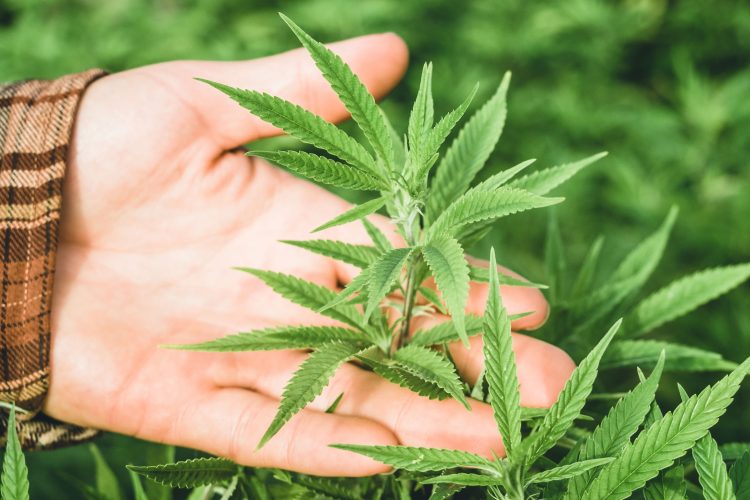New research could mean wonders for industrial hemp growers
Posted: 16 November 2020 | Bethan Grylls (New Food) | No comments yet
A test that predicts THC versus CBD in cannabis plants has been developed, which could save industrial hemp growers a lot of time, money and effort.


While farmers are familiar with the uncertainty – never knowing for certain if their next harvest will be a good one or not – industrial hemp growers are faced with an added complication. This unknown resides in the levels of THC present in the cannabis sativa crop.
Industrial hemp growers monitor their plants throughout the season, sending samples off for chemical analysis, but THC levels peak at the plant’s maturity and can catch growers off guard. If the crop exceeds federal THC levels, the growers must destroy the crop.
But The University of Minnesota believes it may have a solution to quench farmers’ anxieties: a genetic test that can predict levels of THC versus CBD in cannabis plants.
“We validated a simple genetic test that can predict whether a plant will produce mostly the CBD or THC molecule, using a variety of Cannabis sativa plants,” said George Weiblen, who is a professor in the College of Biological Sciences and the Science Director & Curator of Plants at the Bell Museum.
The researchers studied three varieties of cannabis plants from industrial hemp growers, wild or feral cannabis known as ‘ditch weed’, and marijuana samples from the National Institute on Drug Abuse. They compared their genetic markers with the ratio of THC versus CBD, and then verified that genetics were a good predictor of the ratio.
Dependent on how much THC is present in the plant will dictate whether they fall into the category of hemp or marijuana. However, the researchers argue that a definition based on THC alone doesn’t match the biology. Instead, they propose using the ratio of THC to CBD to separate THC-type plants from CBD-type plants.
During their study, they were surprised to find that the ditch weed contained both CBD-type and THC-type plants. The populations are mixed and the mixing of plant types extends beyond ditch weed. Weiblen said that finding THC-type plants in a field of ditch weed is rare, a one in 100 chance. The THC levels are also much lower than what marijuana users are seeking.
On closer examination, the team discovered impurities in planting seed imported from Canada. Some varieties proved to be 100 percent pure CBD-type, but a few had too much THC to meet the legal definition of industrial hemp. As for CBD products that claim to be 100 percent industrial hemp, Weiblen is also skeptical.
Understanding the genetic basis for CBD-type and THC-type plants has implications for the US Department of Agriculture and state industrial hemp programmes. The opportunity to know that seeds are CBD-type prior to planting is significant and seeds could be certified to guarantee consistency and quality.
“We hope this new test can assist in new seed certification for the hemp industry,” said Weiblen. “For hemp to take off in Minnesota and elsewhere, there must be ways to assure growers they won’t have to destroy their crops at the end of the season.”
The research team, led by the Weiblen Lab, published their findings in the American Journal of Botany.
Related topics
Related organisations
American Journal of Botany., Bell Museum, College of Biological Sciences, The University of Minnesota





